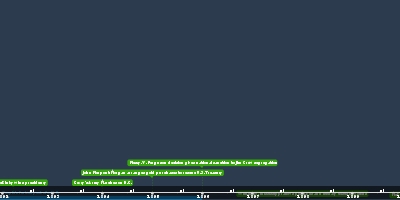1 Jan 1905 Jahr - Lochner v. New York
Beschreibung:
A 1905 Supreme Court ruling that New York State could not limit bakers’ workday to ten hours because that violated bakers’ rights to make individual contracts. This example of legal formalism did not take into account the unequal power of employers and individual workers.At the same time, the Supreme Court proved hostile to many proposed reforms. In 1895, for example, it struck down a recently adopted federal income tax on the wealthy. The Court ruled that unless this tax was calculated on a per-state basis, rather than by the wealth of individuals, it could not be levied without a constitutional amendment. It took progressives nineteen years to achieve that goal.
Labor organizations also suffered in the new political regime, as federal courts invalidated many regulatory laws passed to protect workers. As early as 1882, in the case of In re Jacobs, the New York State Court of Appeals struck down a public-health law that prohibited cigar manufacturing in tenements, arguing that such regulation exceeded the state’s police powers. In Lochner v. New York (1905), the U.S. Supreme Court told New York State it could not limit bakers’ workdays to ten hours because that violated bakers’ rights to make contracts. Judges found support for such rulings in the due process clause of the Fourteenth Amendment, which prohibited states from depriving “any person of life, liberty, or property, without due process of law.” Though the clause had been intended to protect freedmen, courts used it to shield contract rights, with judges arguing that they were protecting workers’ freedom from government regulation. Interpreted in this way, the Fourteenth Amendment was a major obstacle to regulation of private business.
Farmer and labor advocates, along with urban progressives who called for more government regulation, disagreed with such rulings. They believed judges, not state legislators, were overreaching. While courts treated employers and employees as equal parties, critics dismissed this as a legal fiction. “Modern industry has reduced ‘freedom of contract’ to a paper privilege,” declared one labor advocate, “a mere figure of rhetoric.” Supreme Court justice Oliver Wendell Holmes Jr., dissenting in the Lochner decision, agreed. If the choice was between working and starving, he observed, how could bakers “choose” their hours of work? Holmes’s view, known as legal realism, eventually won judicial favor, but only after years of progressive and labor activism.
Zugefügt zum Band der Zeit:
Datum:
1 Jan 1905 Jahr
Jetzt
~ 120 years ago
